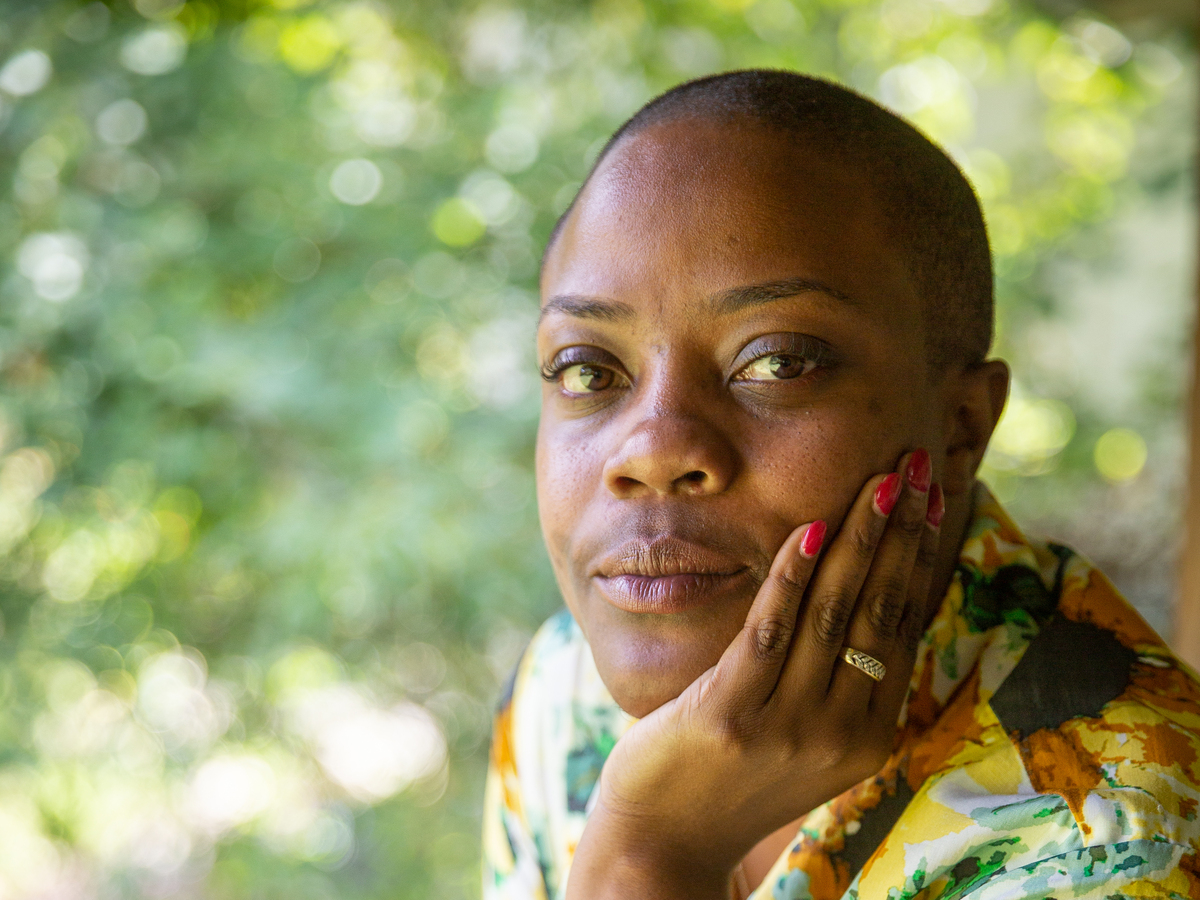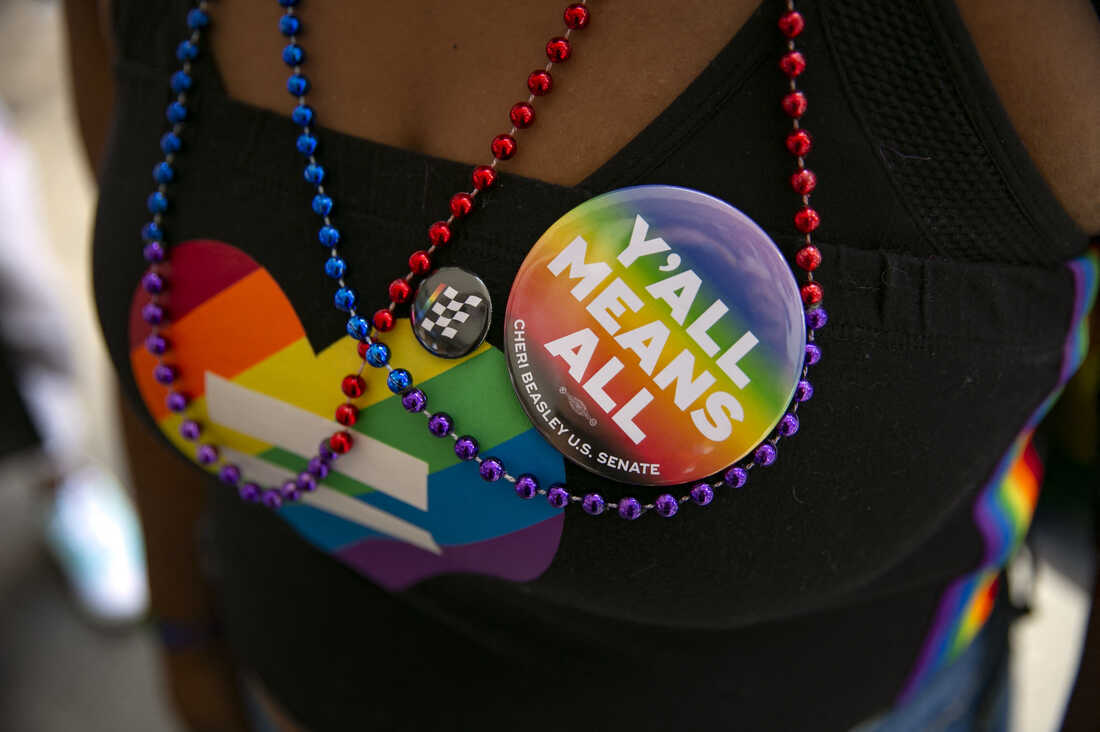Ash Williams says he’s now making sure his work extends beyond the state of North Carolina.
Jessica Tezak for NPR
hide caption
toggle caption
Jessica Tezak for NPR


Ash Williams says he’s now making sure his work extends beyond the state of North Carolina.
Jessica Tezak for NPR
Ash Williams has been on the front lines for reproductive health in his state. Now, another challenge arises.
Who is he? Williams is an abortion doula based in North Carolina.
- An abortion doula provides support for clients throughout the process of ending a pregnancy. North Carolina has been a haven in the South for people to receive reproductive healthcare this last year.
- Ash spoke with NPR’s Destinee Williams last year in the wake of Roe v. Wade being overturned, about what his job was like, and how things would change.
- As a Black transgender man, who has had two abortions himself, Williams prioritizes inclusivity and accessibility in the care he provides.
Why is happening? North Carolina, where Williams works and lives, is joining several other GOP-led states in moving towards restricting abortion access.
- This week, the Republican supermajority in the state legislature ensured that a ban on most abortions after 12 weeks will become the law in N.C.
- This overrode Democratic Gov. Roy Cooper’s veto.
- One key figure in this has been Republican North Carolina house member Tricia Cotham, who campaigned on pro-choice values as a Democrat, and then switched parties after winning her election — a move that has drawn ire from her constituents and other politicians in her state.


A woman wears a button during celebrations for Pride month on June 25, 2022, in Raleigh, North Carolina.
Allison Joyce/AFP via Getty Images
hide caption
toggle caption
Allison Joyce/AFP via Getty Images
What’s he saying? Ash spoke with NPR’s Ari Shapiro about what his job entails, and how this 12-week ban will impact his work.
On what an abortion doula does:
An abortion doula is a person who provides emotional, informational and, when given consent, physical support before, during and after abortion.
Because I’m a transgender person, it’s really important for me to be able to offer gender expansive care for the people that I serve.
And I’m also funding people’s abortions as well. So anything from letting people know what clinics are OK to go to, where they can actually receive care, to explaining sedation options for them, and then going out to do what’s needed to find and then increase access to all of the things someone needs as it relates to abortion.
On the purpose behind his doula work, and training other abortion doulas:
I do this work because there are other trans people who have abortions and they too deserve to have the best abortions possible.
I am really kind of sitting at this intersection of trans justice and abortion access. And I believe that if we focus on this intersection, we will make sure that people of all genders have increased access to all types of reproductive care.
Want more on abortion rights? Listen to Consider This on the Texas lawyer behind the so-called “bounty hunter” abortion ban.
On the impact of the 12-week ban, and how it will change his work:
I have a lot more work to do now. I’m also making sure that my work extends beyond the state of North Carolina because so many people are trying to access care here from outside of the state. And so I want to be able to serve those folks as well.
The pragmatic part of my brain says that we need to make sure that they can have the best abortion possible. And that means that we need to look into travel. And so I am going to work with my partners and I’m going to work with other organizers to get people out of the state of North Carolina if that is something that’s needed. I also am increasing access to information about self-managing abortion through medication right now.
On looking forward:
In a lot of ways, I do feel very prepared. I’ve always been trying to figure out how to get someone to their appointment from a rural place. I’ve always been trying to figure out how to flip a nickel into $500 for someone’s appointment. I’m going to have to rely on the years of organizing before the fall of Roe to really know what to do at this point.
So, what now?
- The 12-week ban in North Carolina is set to begin on July 1.
- Abortion continues to be a hot button issue for upcoming elections across the country.
Learn more:
This story originally appeared on NPR

